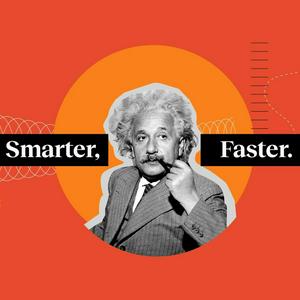Conflict, crisis, consumption: What’s eating our nation? Amanda Ripley: Full Interview
**🔥 *Hooked on Hate: Why We Can’t Look Away from Conflict***
In *High Conflict*, Amanda Ripley dives into the dark heart of human friction — that toxic, magnetic version of conflict we fall into and can’t escape. It’s not just fighting — it’s a cycle of obsession, identity, and self-destruction. Whether it’s politics, relationships, or gang wars, the pattern is the same: we become trapped in an all-or-nothing mindset, harming the very things we swore to protect.
**🧠 Why We Get Stuck**
Ripley compares high conflict to a tar pit. It *looks* calm, even inviting — but the moment you step in, you're stuck. Others join in, thinking they’re helping or gaining ground, and they too get trapped. And the harder you fight, the deeper you sink. Your mind narrows, your stress skyrockets, and your judgment crumbles. What begins as a cause turns into a cage.
**🔁 The Paradox of Wanting In and Out**
There’s a wild contradiction at the center of high conflict: we *desperately* want to escape it, but we’re also *drawn to it*. It gives us a sense of purpose, of belonging — even as it consumes us. It’s addictive. You’ll lose sleep. You’ll lose perspective. And ironically, you’ll lose the very thing you were fighting for.
**🎭 We’re All Under a Spell**
People in high conflict seem like they’re under a spell. They repeat the same conversations. They grow more extreme. Why? Because when we don’t feel heard — and we rarely do — we yell louder, simplify everything, and push further. It becomes about *winning*, not resolving.
**🎯 The Understory: What Are We *Really* Fighting About?**
Ripley introduces the idea of the “understory” — the hidden emotional root beneath every loud, surface-level argument. Most fights aren’t about politics, chores, or even ideology — they’re about deeper needs like respect, control, recognition, or care. Miss that, and the real issue festers forever.
**📉 The Traps We Fall Into**
Across every example — gangs, divorces, councils — the same trip wires emerge:
- **Binary thinking**: It’s “us vs. Them.”
- **Fundamental attribution error**: We excuse *our* actions but label others as evil.
- **No off-ramp**: People stuck in high conflict often don’t see a way out — or anyone waiting with compassion when they try.
**🧊 Breaking the Spell**
To escape, we need something radically different: not avoidance, not surrender, and not war. Ripley champions a fourth path — cultivating *good conflict*: friction that’s productive, honest, and deeply human.
**🔄 Looping: The Game-Changing Tool**
The most powerful weapon? *Listening.* Real listening. Ripley teaches “looping” — a method where you reflect back what you hear, check if it’s accurate, and genuinely try to understand. When people feel heard, they open up. They drop their guard. They even understand themselves more clearly.
**🏀 Real-World Redemption**
Take Curtis Toler — a former gang leader who broke out of high conflict after an emotional reckoning during his son’s graduation. He had support, faith, and a new community waiting — key ingredients for escape. But most don’t have that. So, the conflict continues.
**💬 Final Punch**
You can't change a mind that doesn't feel heard. But when you start to uncover the *understory*, everything changes. The world doesn’t need less conflict — it needs *better* conflict. The kind that builds instead of burns.
Chapters:-
00:00 Breaking the cycle of high conflict
00:23 The psychology of surviving a crisis
00:41 The news is broken (and how to fix it)
00:57 Why people avoid the news, across the globe
01:07 The illusion of polarization
About Amanda Ripley:
Amanda Ripley is a New York Times bestselling author, Washington Post contributor, and co-founder of consultancy firm, Good Conflict. Her books include The Smartest Kids in the World, High Conflict, and The Unthinkable
-------------------------
Learn more about your ad choices. Visit megaphone.fm/adchoices
